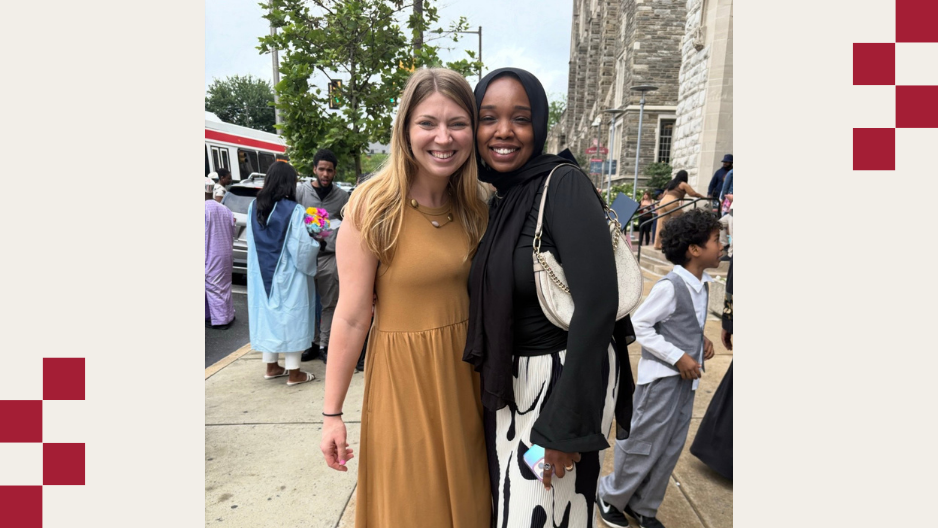Michelle Ferguson (EDU ’20) begins every school day at Franklin Learning Center in Philadelphia with a commitment: ensuring that immigrant and refugee students are seen, heard and supported.
As the English learner (EL) point person and coordinator of the school’s newcomer learning program, Ferguson leads what she describes as “one of the district’s most comprehensive supports for recently arrived students.” The program offers targeted English language instruction, academic support and social-emotional resources to help students in their first years in the U.S.
“My role is part coordinator, part advocate and part systems-builder,” said Ferguson. “I manage all aspects of the newcomer program, from scheduling and placement to curriculum development and teacher support, and I also serve as the point person for the entire school community on anything related to English learners.”
In a school where a large portion of the student population are multilingual learners, Ferguson’s work is central to student success. She facilitates interpretation services, supports teachers working with ELs across subject areas, assists students with special education and 504 referrals, and works closely with families, often across multiple languages, to ensure their voices are part of the education process.
“We’re meeting students where they are academically, emotionally and linguistically,” Ferguson said. “Some of them have interrupted formal education, some are navigating trauma, and many are working jobs or caring for siblings outside of school. My job is to make sure they know they belong and that they have a path forward.”
Ferguson’s path began at Temple University, where she earned her master of science in education in teaching English to speakers of other languages (TESOL) through the College of Education and Human Development’s +1 accelerated master's (dual-degree) program. She also holds a bachelor of arts in linguistics and a certificate in American Sign Language from the College of Public Health.
“Temple’s TESOL program didn’t just teach me how to teach. It shaped how I see systems and equity in education,” she said. “The faculty were incredible mentors, and the experience was deeply tied to community and justice.”
As an undergraduate student, Ferguson interned with HIAS Pennsylvania, a nonprofit that provides legal and educational services for immigrants and refugees. After graduation, she joined the organization full-time, staying for nearly five years and advancing into leadership.
At HIAS, she created a mentoring program to guide English learners through the college application process and, as she recalled, “helped secure over $2 million in scholarship aid for a single graduating class.” She also led language access advocacy across Philadelphia schools, pushing for the inclusion of Indigenous languages in interpretation services after a Qʼeqchiʼ-speaking student got lost while traveling home due to communication gaps.
“These moments of advocacy are urgent,” she said. “They’re not just paperwork issues. They affect whether a student feels safe, whether a family feels welcome, and whether a child has a chance to succeed.”
Now in a public-school setting, Ferguson continues that work on the ground, integrating her years of nonprofit experience into school-based leadership. She oversees English Learner services school-wide, guides staff in implementing strategies for multilingual learners and plays an active role in shaping district-wide conversations about newcomer support.
“As a first-generation college student, I know what it’s like to figure things out as you go,” Ferguson said. “That’s why I care so much about access, about helping students and families navigate systems that weren’t made with them in mind.”
Temple’s impact, she says, is still with her every day.
“Temple gave me the tools and the values that guide everything I do. It taught me that being an educator means more than teaching content. It means building bridges, removing barriers and showing up.”

